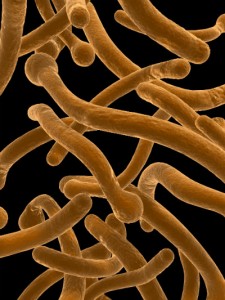 African-American women who grew up in abusive homes have a 20% higher risk of having asthma as an adult.
African-American women who grew up in abusive homes have a 20% higher risk of having asthma as an adult.
Constant stress uses up cortisol that would otherwise be used to control inflammation that can set off an asthma attack. Read more…
SOURCE: Science Daily
 It’s a bad idea to take antibiotics during pregnancy. Children whose mothers took antibiotics during pregnancy are more likely to develop asthma, as well as autism, ADHD, learning disabilities, dyslexia, arthritis, allergies, depression, bipolar disorder, eczema, kidney problems, schizophrenia, acid reflux, colic and autoimmune disorders.
It’s a bad idea to take antibiotics during pregnancy. Children whose mothers took antibiotics during pregnancy are more likely to develop asthma, as well as autism, ADHD, learning disabilities, dyslexia, arthritis, allergies, depression, bipolar disorder, eczema, kidney problems, schizophrenia, acid reflux, colic and autoimmune disorders.  And here’s yet another reason to eat organic food: pesticides might be causing your food allergies. Dichlorophenols, such as the pesticide 2,4-D as well as moth balls and room deodorizers, kill bacteria, including the good bacteria in your gut and may thus contribute to gut dysbiosis.
And here’s yet another reason to eat organic food: pesticides might be causing your food allergies. Dichlorophenols, such as the pesticide 2,4-D as well as moth balls and room deodorizers, kill bacteria, including the good bacteria in your gut and may thus contribute to gut dysbiosis. 
 Chlorine in tap and pool water has been linked to a rising number of people with food allergies. Chlorine is an endocrine disruptor that also kills good gut flora.
Chlorine in tap and pool water has been linked to a rising number of people with food allergies. Chlorine is an endocrine disruptor that also kills good gut flora.  The etiology of autism may be similar to that for eczema, asthma and allergic responses. One of the reasons is sulfation, which affects the function of proteins and peptides, among other things. Sulfate is produced by oxidation of methionine or cysteine, which are both sulfur-containing amino acids.
The etiology of autism may be similar to that for eczema, asthma and allergic responses. One of the reasons is sulfation, which affects the function of proteins and peptides, among other things. Sulfate is produced by oxidation of methionine or cysteine, which are both sulfur-containing amino acids.  It’s something that biomedical doctors, functional-medicine doctors and naturopaths have known about for years, but the
It’s something that biomedical doctors, functional-medicine doctors and naturopaths have known about for years, but the  “Children whose mothers took antibiotics while they were pregnant were slightly more likely than other kids to develop asthma.
“Children whose mothers took antibiotics while they were pregnant were slightly more likely than other kids to develop asthma. Babies born to moms with high levels of pollen exposure during late pregnancy have a higher risk of asthma.
Babies born to moms with high levels of pollen exposure during late pregnancy have a higher risk of asthma.  Having antibodies against the receptors for thyroid-stimulating hormone is a hidden cause of hypothyroidism, despite having “normal” TSH levels and taking thyroid medication.
Having antibodies against the receptors for thyroid-stimulating hormone is a hidden cause of hypothyroidism, despite having “normal” TSH levels and taking thyroid medication. 

